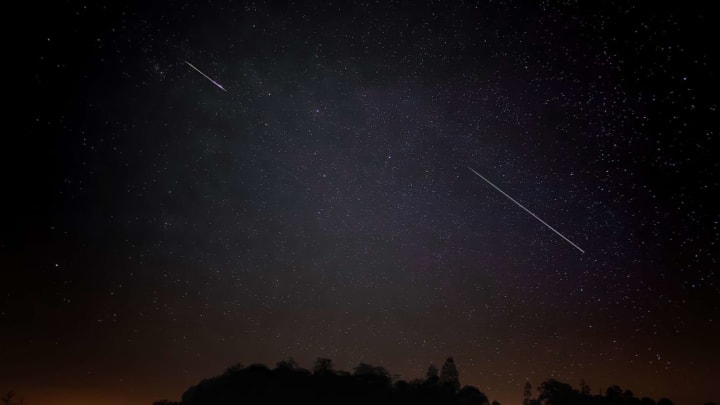Your chances of seeing a unicorn this week are slim, but if you look up on Thursday night, you may see something that's almost as extraordinary. As Sky & Telescope reports, the upcoming Alpha Monocerotid meteor shower could produce a meteor outburst, which means there could be multiple shooting stars per second streaming from the unicorn constellation.
What is a unicorn meteor shower?
There's nothing particularly magical about the Alpha Monocerotids. They appear to originate near the star Procyon, which is next to the constellation Monoceros, the Greek name for unicorn.
The shower is known for occasionally packing a dense flurry of activity into a brief viewing window. The meteors appear between November 15 through the 25th of each year, and peak around the 22nd. Several times a century, the shower treats sky gazers to an "outburst" of shooting stars that lasts less than an hour.
Such an outburst is predicted for 2019. According to astronomers Peter Jenniskens and Esko Lyytinen, the Earth is on track to pass through a thick portion of the tail of the unknown comet that provides debris for the shower. The conditions are almost the same as they were in 1995, when the Alpha Monocerotids lit up the sky at a rate of 400 meteors per hour, which is approaching meteor storm levels. For that reason, the scientists are expecting shooting stars to appear in the same numbers this time around.
How to see the meteor outburst
Timing is crucial if you want to catch the Alpha Monocerotids, even more than with regular meteor showers. The outburst is expected to start at 11:15 p.m. EST and last just 15 to 40 minutes. Luckily, the sun will be fully set by then and the crescent moon won't rise until after 2 a.m, creating optimal viewing conditions for the eastern half of the country. The shooting stars are fast—traveling at 40 miles per second—and they come at random. Don't be surprised to wait a minute between meteors during some parts of the outburst and less than a second at others.
[h/t Sky & Telescope]
